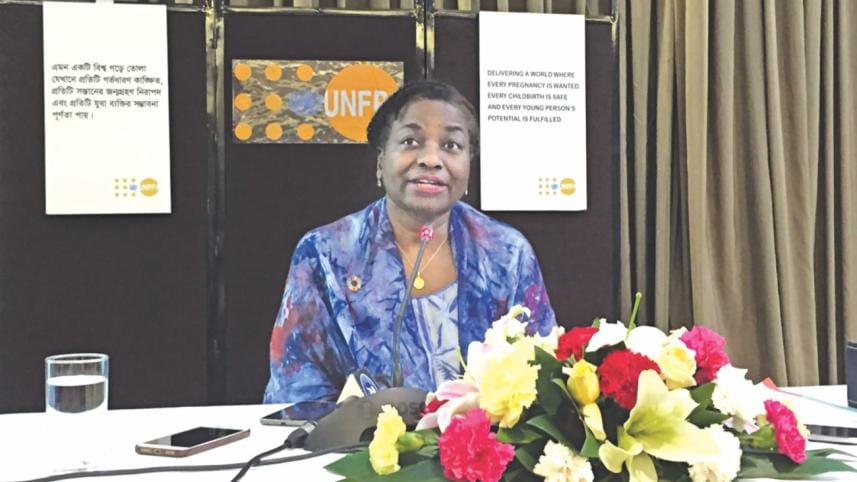Join monetary contribution

United Nations Under-Secretary General Natalia Kanem has pleaded for increased support for the Rohingyas, who might face a major challenge in the upcoming monsoon season when much of the refugee camps could be flooded and see landslides.
“We expect the international community to step up and join to increase the monetary contribution,” she said at a press conference at a city hotel yesterday following a four-day visit to Bangladesh, including to the Rohingya refugee camps in Cox's Bazar.
She appreciated the solidarity that Bangladesh and its host community demonstrated by sheltering some 700,000 Rohingyas, who fled military crackdown in Myanmar's Rakhine state since August last year, and joined some 300,000 others who had fled the earlier waves of violence in Myanmar.
The UN in a joint response plan in March appealed for $950 million in humanitarian assistance for the some 1 million Rohingya and 300,000 locals affected by the refugee influx.
Only 17 percent of the money has so far been received, said Kanem, also executive director of the UN Population Fund (UNFPA).
She said the weather-related crisis could aggravate the situations and abrupt the UN ability to “safeguard the lives of women and girls who already have been affected by an unprecedented amount of violence.”
“They have found the refuge across the border here. Now the very basic needs of survival -- food, appropriate shelter, and the ability to feel safe and protected -- are barely within reach,” she told reporters.
“It threatens our ability to feed over 855,000 on a daily basis. As UNFPA, we have at least 60 newborn babies [at the Rohingya camps] every day. We have at least scores of mothers who are pregnant, who must receive appropriate nutrition, appropriate antenatal care and very importantly, the midwives,” the UN high official said.
Natalia said the refugee women should be able to have freedom of mobility within the camp without fear of their safety. UNFPA is providing flash lights so that they may go back and forth to look after them after when the police protection and other forms of physical protection are not available.
“We will need to have much more solar and other types of sustainable lighting in the camps in order for the women to move about safely.”
Asked on holding the perpetrators accountable, Kanem said women and girls bear the brunt not only of displacement but also of sexual and gender based violence.
“As the UN, we are calling for the establishment of effective accountability mechanisms for any human rights violators,” she said.
Kanem also said the country is an international success story for reducing total fertility rate, which is 2.3 per mother now, as well as maternal and child deaths.
However, it was important to reduce the child marriage and early pregnancy to sustain the progress. Presently 66 percent girls marry before they reach 18 years.
She said the UNFPA is working with Bangladesh government to ensure that adolescent girls' education is not disrupted for their marriage and pregnancy.
“We are having great impacts but these need to be accelerated,” Kanem said, adding that she highlighted these aspects during her meeting with Prime Minister Sheikh Hasina.



 For all latest news, follow The Daily Star's Google News channel.
For all latest news, follow The Daily Star's Google News channel.
Comments